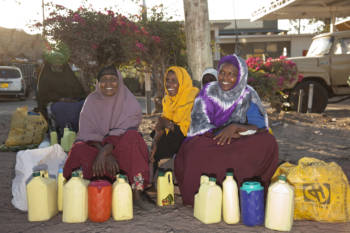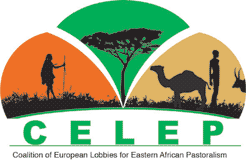How pastoralism adds to food security and nutrition

When: 15/12/2020 - 13h-14h30 GMT+1
Organised by:


Click here for more info and registration
*Registered participants will receive an email with a link to join the webinar one week in advance and a reminder a few days before the webinar
Introduction
Animal-sourced food is highly valued from a nutritional perspective and represents a key factor in the fight against undernutrition in the Global South. Milk, for example, plays a critical role in child feeding among pastoral and agropastoral communities, where it is considered essential for the healthy growth of children and hence is given to them daily. Linked to this, seasonal fluctuations in milk production and its availability at household level have been studied, and strong links to nutritional outcomes in children have been found. Therefore, one way to address undernutrition in pastoral and agropastoral communities, especially in children, is to ensure that milk production and availability at household level are sustained, also and more critically during the dry season.
Objective
The aim of this webinar is to provide an overview of the critical linkages between livestock production and nutrition outcomes in pastoral contexts by presenting the Milk Matters study that was undertaken by a group of researchers of the Feinstein International Center at Tufts University in the Somali Region of Ethiopia in 2010. The study highlights the higher cost-effectiveness of livestock interventions compared to therapeutic child-feeding programmes, and that the benefits extended beyond nutrition to include developmental, health, and livelihoods aspects.
Following that, a case of operational research inspired by the Milk Matters study, Livestock for Health (2019-2021) led by the Washington State University in partnership with Concern Worldwide, FAO and UNICEF in Marsabit Kenya, will be presented. The study investigates the effect of the provision of livestock feed alone and a combination of livestock feed with nutritional counselling on reducing acute malnutrition in children under 5 years and pregnant and lactating women in dry seasons. An overview of the study, the data collected thus far and some preliminary results will be presented and discussed.
Format and Date
A 1.5h session with two presentations followed by a discussion. The webinar will be hosted by Concern Worldwide. The webinar is scheduled for 15 December 2020 at 13h-14h30 (GMT+1) or 15h-16h30 EAT.
Speakers and facilitator
Regine Kopplow, Senior Adviser for Food and Nutrition Security and lead of the Livelihood Team with Concern Worldwide, will provide an introductory note and a summary of the Milk Matters study.
Dr Thumbi Mwangi, Associate Professor at the Washington State University, Paul G Allen School for Global Animal Health, and Director of the Feed the Future Innovation Lab for Animal Health will present the Livestock for Health operational research.
Dr Edwin Mbugua Maina, Coordinator for Health and Nutrition Programmes with Concern Worldwide Kenya, will join the panel discussion.
The webinar will be facilitated by Koen Van Troos (VSFB/CELEP).
